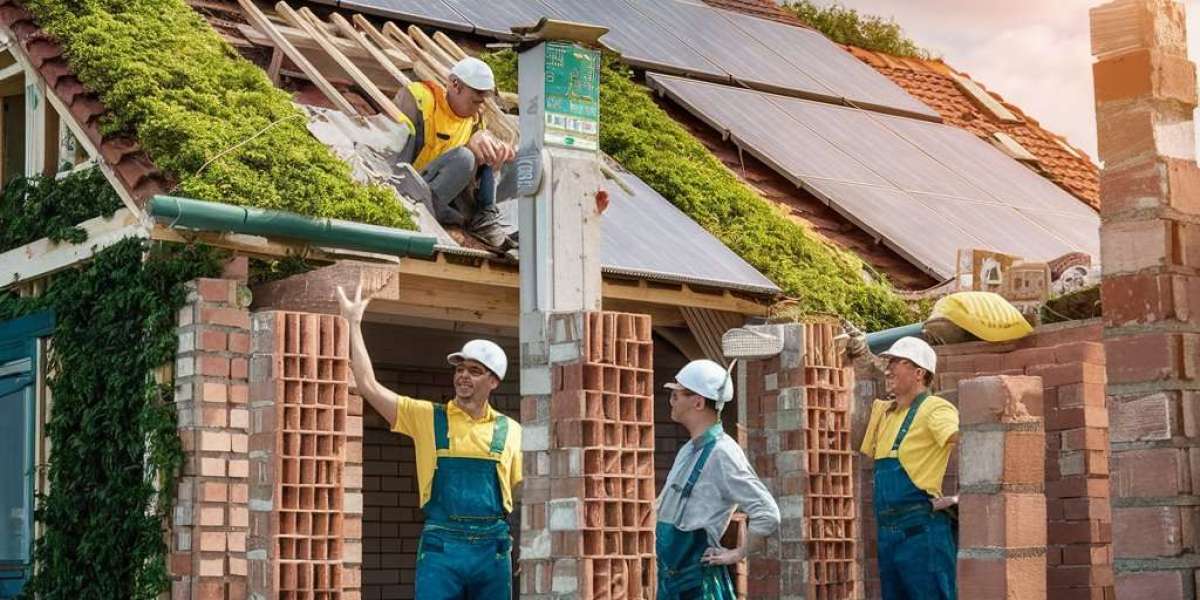In the construction industry, safety is paramount. For commercial masonry contractors, adhering to stringent safety standards is essential to ensure not only the well-being of workers but also the quality and durability of their projects. This article explores the critical safety standards that commercial masonry contractors must follow to maintain compliance and deliver high-quality work.
The Importance of Safety Standards in Commercial Masonry
Safety standards in commercial masonry are designed to protect workers, prevent accidents, and ensure the structural integrity of buildings. Adherence to these standards is crucial for several reasons:
- Worker Safety: Protecting the health and safety of workers is the top priority.
- Legal Compliance: Following regulations helps avoid legal issues and potential fines.
- Quality Assurance: Ensuring that the work meets high standards of quality and durability.
- Reputation: Maintaining a good reputation in the industry by demonstrating a commitment to safety.
Key Safety Standards for Commercial Masonry Contractors
1. OSHA Regulations
The Occupational Safety and Health Administration (OSHA) sets forth comprehensive safety regulations that commercial masonry contractors must follow:
- Fall Protection: Implementing measures to prevent falls, such as guardrails, safety nets, and personal fall arrest systems.
- Scaffolding Safety: Ensuring that scaffolding is properly erected, maintained, and used, including regular inspections and worker training.
- Hazard Communication: Providing information and training on hazardous materials and ensuring proper labeling and storage.
2. Personal Protective Equipment (PPE)
Proper use of personal protective equipment is vital for the safety of masonry workers:
- Head Protection: Hard hats to protect against falling debris.
- Eye and Face Protection: Safety glasses and face shields to prevent injury from flying particles.
- Respiratory Protection: Masks or respirators to protect against dust and fumes.
- Hand and Foot Protection: Gloves and steel-toed boots to prevent injuries from handling materials and heavy equipment.
3. Training and Certification
Training is a key component of maintaining safety standards:
- Safety Training: Regular safety training sessions to keep workers informed about best practices and new regulations.
- Certification: Ensuring that all workers have the necessary certifications, such as OSHA 10-hour or 30-hour training.
4. Site Safety Management
Effective site safety management involves several practices:
- Site Inspections: Regular safety inspections to identify and address potential hazards.
- Emergency Preparedness: Having emergency plans and procedures in place, including first aid kits and fire extinguishers.
- Safety Meetings: Conducting toolbox talks and safety meetings to discuss safety concerns and updates.
5. Equipment Safety
Proper use and maintenance of equipment are essential for safe operations:
- Equipment Inspection: Regular inspection and maintenance of tools and machinery to ensure they are in good working condition.
- Operator Training: Ensuring that only trained and authorized personnel operate machinery and equipment.
Quality Work Through Safety Compliance
Adhering to safety standards is not just about compliance; it directly impacts the quality of work. When commercial masonry contractors prioritize safety, they ensure that:
- Projects are completed on time without incidents causing delays.
- Work is performed to the highest standards, with attention to detail and precision.
- Structures are durable and reliable, meeting all necessary building codes and regulations.
Elevate Your Outdoor Spaces with Expert Masonry Services
Ready to elevate your outdoor living spaces with exquisite masonry services in Suffolk County, NY? From stone patios to fire pits, from stone walls to water features, we specialize in creating beautiful outdoor spaces that enhance the aesthetics and functionality of your property. Each project we undertake is unique, and our skilled design specialists will work closely with you to bring your dreams to life. Our commitment to safety and quality ensures that your outdoor spaces are not only stunning but also built to last.
Conclusion
For commercial masonry work, adhering to safety standards is fundamental to ensuring compliance and delivering quality work. By following OSHA regulations, utilizing proper PPE, providing thorough training, managing site safety effectively, and maintaining equipment, contractors can protect their workers and ensure successful project outcomes. Safety and quality go hand-in-hand, and prioritizing both is essential for building a strong reputation and achieving long-te


